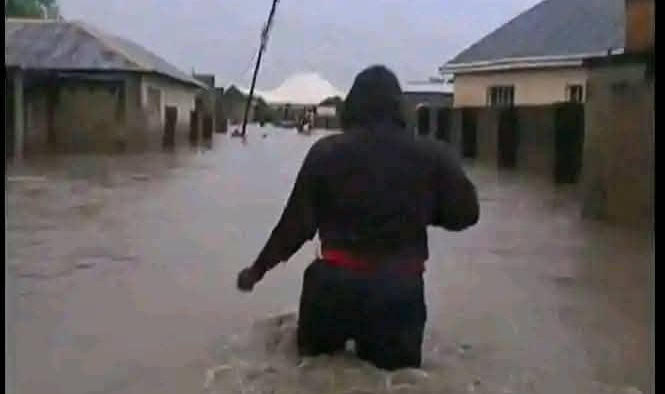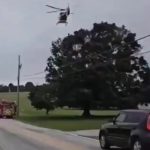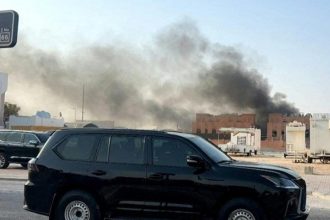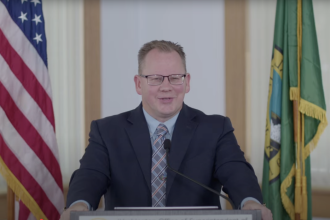Many houses and farmlands located in flood-prone communities of Ogbaru Local Government Area of Anambra State have been submerged by flood following persistent rainfall, resulting in rising water levels from the River Niger.
Ogbaru is situated on the banks of the River Niger and borders the Delta and Rivers states. The community is among some flood-prone areas with a perennial flooding challenge.
Recall PUNCH Online report on September 15 that the Nigerian Meteorological Agency forecast thunderstorms and rainfall, and predicted the flooding of coastal communities in states across the federation.
The Ogbaru LG flooding followed, resulting from the heavy rainfall on Tuesday and Wednesday, which caused the River Niger to overflow and submerge farmlands, markets, schools, churches, and both private and public buildings in the affected communities.
Our correspondent, who visited the affected communities, gathered that the development has left many families stranded and seeking refuge in the upland areas, while residents are calling for government intervention as the flooding has once again crippled the communities, unleashing a devastating blow to their economic and social structures.
Videos and pictures circulating on social media showed residents, including women and children, wading through the waters, with submerged streets, roads, and houses.
At the moment, the Anambra State Emergency Management Agency has opened holding centres across vulnerable local government areas and urged residents of riverine communities, particularly in Ogbaru, Anambra East, and Anambra West LGAs, to move to higher grounds for safety.
One of the residents in the area who spoke to our correspondent, Ndidi Nwachukwu, a yam and cassava farmer, expressed her deep pain and anguish while narrating her ordeals.
Nwachukwu said, “I am from Ogwuikpele, one of the communities in Ogbaru LGA. The flood has destroyed my yams. I had waited to start harvesting them this week, but the flood came suddenly. It has ruined my hopes and wasted my labour. I don’t know where to start. I borrowed some money at a high interest rate to invest in large-scale farming this year.
“Some people harvested their crops early and prematurely, but I waited because I did not have the money to hire labourers. I spent a lot of money on yam seedlings and cassava stems, hoping for a bountiful harvest to recoup my investment and pay back my loan. But look at me now. With this flood and premature harvesting, I am not sure I will even get up to 25 per cent of what I invested in this year’s farming. Where do I start again?”
Also, a widow in the area, Nwakaego Uzor, a cassava and maize farmer, shared her heart-wrenching tale, adding, “All my crops are submerged underwater. I don’t have the funds to hire labourers to help with the harvest. I started doing the premature harvesting by myself, but the flood has submerged them.”
Also speaking, a community leader, James Obiwanne, said apart from shutting down normal daily activities, the flood has caused a disastrous impact on lives and livelihoods and displaced residents of the area, with Ogbaru being the worst hit.
Obiwanne said, “The reason Ogbaru remains worst hit is because it is the last coastal area in the state from where the flood across the federation enters parts of Rivers and Bayelsa states, among others, emptying into the Atlantic Ocean.
He regretted that many of the aged persons died, as many of them could not wade through the flood waters, and most often neglected or suffered from contracted diseases during the flood crisis.
The Deputy Governor of the state, Dr Onyekachukwu Ibezim, is working with the United Nations Development Programme and the Federal Government to step up flood control efforts.
Ibezim, who is the Chairman of the Flood Management Committee, said, “The holding camps are being upgraded and the respective local government chairmen are on top of the game in ensuring that the impact would be minimal”.
He further explained that the joint efforts of the state government and UNDP include clearing blocked drainages, enforcing the “Operation Clear Your Waterways” directive, and advancing plans for long-term dredging of the River Niger.









